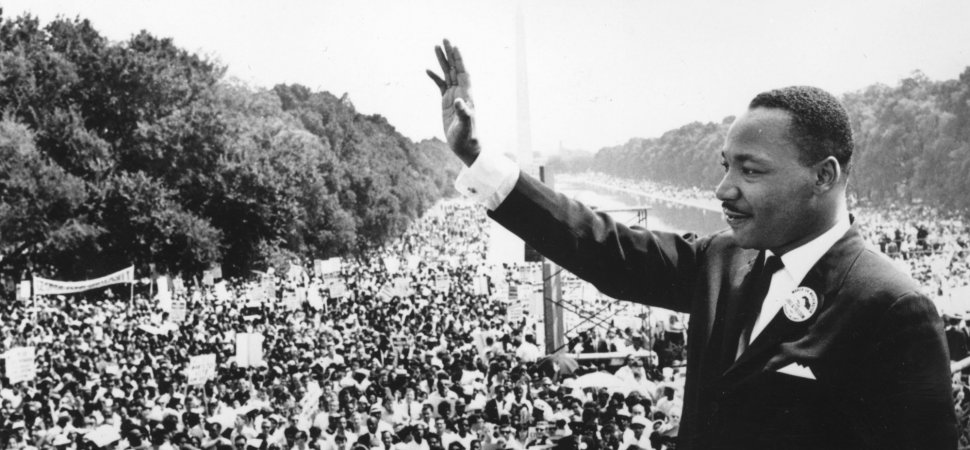The good news for leaders around the world is that there is no shortage of examples on how to be effective. Thus leaders can study the traits of leaders of both yesterday and today for sound guidance on how to handle almost any situation.
Martin Luther King, Jr. is one of those shining examples. His steady leadership during the challenging times of the civil rights era was transformational for the people he served, in addition to countless others across nations decades later.
Thus if you want to lead your team to make a bigger impact and accomplish more than they thought possible, master these three essential skills consistently demonstrated by Dr. King.
1. Empathy.
Martin Luther King, Jr. made it a point to spend time walking a mile in the shoes of the people he was fighting for. He knew that to be their champion, he needed to have a vivid understanding of their circumstances and the challenges that came with them.
As a result, he spent time talking with those he represented regularly. Sometimes that happened formally through town hall meetings, and in other instances, it occurred informally with impromptu conversations as he went about his work.
But his efforts to understand the plight of those he was leading went beyond what most would think is acceptable. Still, he marched arm in arm with protestors across the bridge in Selma, Alabama. He was thrown in jail for non-violent resistance. And he even moved his family into a run-down building in Chicago for six months when he was working to end housing inequalities.
As you work to lead your team, consider how you can get in the trenches with them on a regular basis so you can better understand what they are dealing with. The time invested to experience the world from their point of view will not only endear you to them but make you more effective in advocating on their behalf.
2. Being a lifelong student.
King earned his doctorate in theology from Boston University in 1955. If you read his speeches and books, you’ll see the many references he makes to philosophers and other historical thinkers and figures, including some who’d come hundreds of years before him.
Even his firm stance on non-violent resistance that made such an impact on the civil rights victories that helped seal his legacy, came from time spent studying the approach from Gandhi’s success with it in India.
Dr. King wrote that Gandhi’s methods were “the guiding light of our technique of nonviolent social change.”
As you work to improve your leadership skills, take comfort in knowing that every idea you have doesn’t have to be original. You can take your cues and guiding principles from others leaders who’ve proven effective.
Carve out dedicated time to learn from others, and not just those in your field. You can learn just as much from others who performed well in an unrelated area, to spark ideas for how to better lead your team and your business.
3. Speaking up (even when it isn’t convenient).
Part of being an effective leader means engaging in difficult conversations or challenging situations that impede your progress.
Too often, this is where leaders fall. They buckle when they encounter resistance. They give in to the status quo and what is popular for fear of the consequences that may come from rocking the boat.
But a transformational leader focuses more on the end-goal for the greater good, rather than her own comfort.
In his famed Letter from Birmingham Jail, Dr. King called out eight of his fellow clergy members who’d asked him to delay civil rights demonstrations in the city. And when those who opposed his work in the Montgomery bus boycott bombed his home, King urged the team and the citizens to press forward toward their goal.
If you want to be a transformational leader, you’ll have to put the mission ahead of your personal comfort. In time, you’ll get more comfortable standing up for what is right, for the purpose of positive change.
A few years back, I had to dig my heels in during a meeting where one of my colleagues was trying to push an initiative through that would have been detrimental to the brand, and to the efforts of my team. Standing my ground publicly wasn’t comfortable, and the response from my colleague wasn’t rosy. But the confidence I gained, along with the high-fives from my team who knew I had fought for them and the brand, made the discomfort worth it.
You can become a transformational leader. One who makes a long-lasting impact. Focus your energy on getting better at these three essential skills, and you’ll be on your way.












